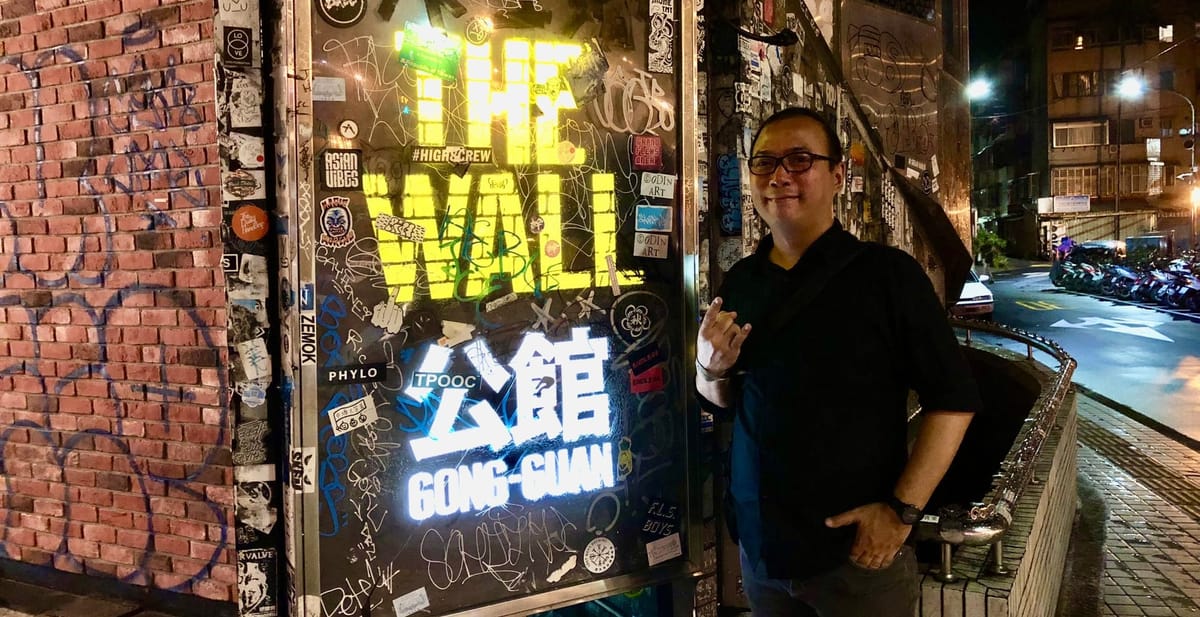Building Local Music Scene
Nurturing a Thriving Local Music Scene: Insights from Orbis

Developing a vibrant local music scene is a multifaceted endeavor that requires collaboration, innovation, and a deep understanding of both local and international music landscapes. Orbis Bo, a key figure in Taiwan’s indie music scene, provides invaluable insights into the processes and challenges involved in cultivating such an ecosystem.
This post explores these insights, drawn from a detailed interview with Orbis, who manages the influential music venue The Wall live house in Taipei, and has contributed to the growth of Taiwan’s indie music culture.
The Role of Venues in Cultural Development
The evolution of Taiwan’s indie music scene owes much to the creation and influence of cultural hubs like "The Wall." Established in the mid 2000s, it quickly became more than just a performance venue. It transformed into a vibrant cultural epicenter, drawing in young, creative individuals who sought a space to express themselves and connect with like-minded peers. The venue’s dimly lit interiors and buzzing with the energy of live performances, created an atmosphere where the indie music scene could truly thrive.
These venues play a crucial role in nurturing emerging talent and providing a stage for new sounds. By hosting successful shows and becoming integral to promotion campaigns, venues like The Wall attract diverse audiences and embed themselves into the local cultural fabric. Though as Orbis mentioned, the genre that thrive through this medium is indie-rock.
But this support extends beyond hosting events to include active collaboration with indie labels and promoters, fostering an ecosystem-like network essential for the growth of the local music scene.
Bridging The Big and The Small Players
The Wall’s influence extends further by bridging the gap between indie and major labels. While major labels have historically dominated Taiwan’s music industry, there has been a noticeable shift where indie artists gain prominence. This space allows indie artists to showcase their talent and major labels to discover new trends and talents.
A symbiotic relationship has developed where major labels, noticing trends fostered by indie scenes, start collaborating with indie artists and venues. This collaboration provides indie artists with more exposure while allowing major labels to tap into the creative innovations of the indie scene. The Wall, with its intimate yet electric ambiance, integrates indie music into the broader industry. This integration is not merely commercial but also cultural, bringing together diverse musical influences and fostering a richer, more inclusive music landscape.
International Influence and Local Adaptation
Experiencing different music cultures firsthand is crucial for introducing diverse influences to local audiences. By traveling to music festivals and scenes around the world, the team behind The Wall can bring various international music styles back to Taiwan, broadening musical horizons and enriching the local music culture. The Wall often features international acts, creating a melting pot of sounds that resonates with Taiwan's cosmopolitan audience.
However, merely replicating international trends is insufficient. Deep engagement with local culture is essential. International artists should connect with local labels, promoters, and other artists to tailor their approach to the specificities of the local market. This local adaptation is crucial for building a genuine connection with the audience and ensuring the sustainability of the music scene. By blending global influences with local flavors, artists create unique sounds that resonate deeply with their audience.
Training and Capacity Building
A significant part of developing a local music scene involves education and capacity building. Initiatives at The Wall train sound engineers and other technical staff, often recruiting from within the community of indie artists. This hands-on training ensures that technical support for live performances is of high quality, enhancing the overall experience for both artists and audiences. The Wall's commitment to quality is evident in its state-of-the-art sound systems and the professional development opportunities offered to its staff.
Moreover, artists are encouraged to seek professional help in managing their careers. This includes understanding the importance of production quality, stage performance, and effective promotion. Providing these resources and support helps artists navigate the complexities of the music industry and develop sustainable careers. Workshops, mentorship programs, and networking events are some of the ways The Wall invests in the future of Taiwan's music scene.
Learning
I dedicated significant efforts to developing the local music scene in Indonesia. My approach centered around learning from countries with well-established music industries. Unlike traditional methods that start with optimizing a venue as a hub, I focused on sending Indonesians abroad to gain experience, hoping they would return and contribute to the local scene. Unfortunately, the reality proved challenging. The disparity between my ambitions and available resources made it difficult to achieve a balanced approach.
In contrast, Orbis’s method begins with establishing a permanent hub, providing a stable foundation for growth. This foundational hub serves as a centralized location for nurturing talent, hosting events, and fostering a vibrant music community. By starting with a physical space, Orbis can immediately create a sense of community and continuity, which I found difficult to achieve through my strategy. This approach highlights the importance of a solid infrastructure in the early stages of developing a music scene. Despite the differences in our methodologies, both approaches aim to enrich the music culture, though I learned that having a tangible starting point, like a venue, can offer more immediate and sustainable benefits.
Orbis and The Wall exemplifies how these elements can come together to create a thriving music ecosystem. By fostering a supportive environment for artists and continuously innovating, The Wall has become a cornerstone of Taiwan’s indie music scene, illustrating the power of local efforts in shaping cultural landscapes. Through dedication, passion, and a commitment to community, The Wall demonstrates that a vibrant local music scene is not only possible but can also flourish and leave a lasting impact.
